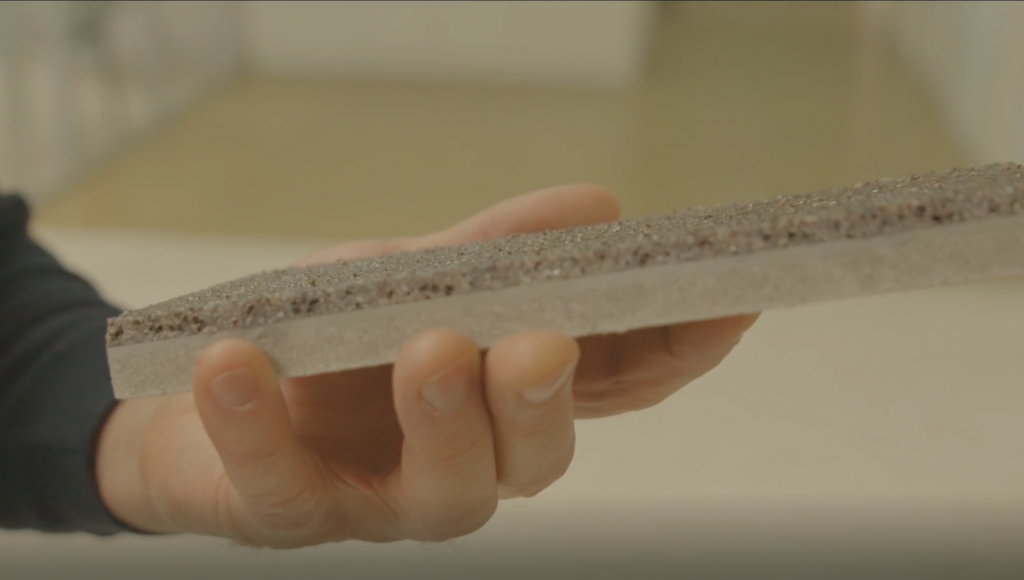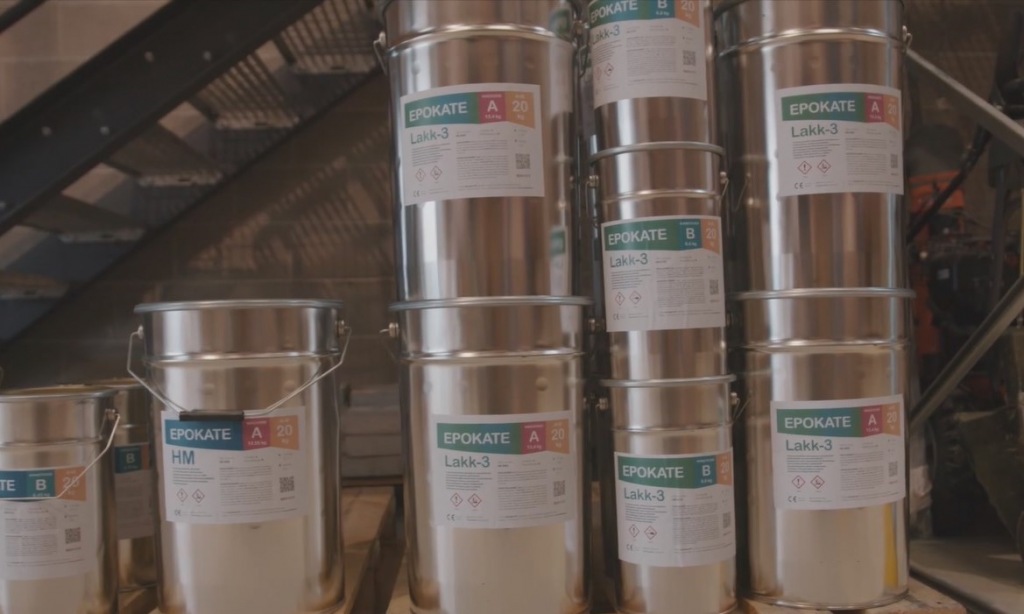Making epoxy flooring products safer and more environmentally friendly
Epokate PLC, a small manufacturer operating near Tartu, Estonia) started the production of epoxy floor components in 2005 and today's production volumes has reached ca 120 tons per year. Customers build floor coverings with Epokate materials in Estonia and abroad in Latvia, Lithuania and Finland, also a number of projects has also been in England food industry and in several Norwegian fish industries and farms.
What is an epoxy floor?

The first epoxy floorings were laid in the 1950s. Due to their strength, hygiene, abrasion resistance and many other excellent properties, epoxy floors are still used to a very large extent in industries and warehouses, as well as in many public spaces. Modern epoxy floor laying materials have become increasingly safer in production, construction and use.
Simply put, two-component epoxy flooring material consists of resin part and hardener or curing component, they are mixed together by a construction company to lay the floor. Both resin and hardener consist of several different components.
The components in the resin part are predominantly epoxy resins (derived from Bisphenol A and Bisphenol F), thinners and surfactants and pigments. The different resins ensure the strength of the floor covering in the reacted state, and properties depend on how long the chains of the molecules are and whether the connections in the polymer molecules are only unidirectional or also spatial. The components in the hardener provide reaction speed, chemical and UV resistance, as well as surface gloss, hardness, elasticity and other properties.
Product development
Climate change and concern for the environment are among of main topics in today's progressive world. Both national governments and businesses are looking for safer alternatives in a world where clean air, water, soil and space are becoming scarce.
Epokate, a manufacturer of two-component epoxy resin floor coverings, has also focused its activities on the development and manufacture of new and environmentally friendly products. Understandably, the chemical industry is not, so to speak, a green activity by nature, and durable floor coverings cannot be expected to be reused repeatedly or biologically decompose, but the introduction of safer product components is a step towards a cleaner world. Epokate seeks for solutions to reduce health and environmental risks of the products, trying to find substitutes to substances of concern in Epokate recipes.

Phasing out nonylphenol
Nonylphenol was part of Epokate flooring lacquer curing component. Nonylphenol is traditionally used in epoxy-lacquer curing components to achieve uniform curing speed for polyamide curing agent, and to ensure oxidative resistance in humid conditions. But nonylphenols are are classified as of high acute and chronic aquatic toxicity; are suspected of damaging fertility and the unborn child (reprotoxic), and are endocrine disruptors.
By developing a number of alternative recipes and performing extensive testing, an optimal recipe was found. All products are free of nonylphenol.
Less benzyl alcohol
On the other hand, we try to find ways to liquefy our products by using solvents with a lower content of volatile organic compounds (VOC). For decades, benzyl alcohol, which is actually a VOC with low volatility, has been used to liquefy the resin component of epochs. However, there is a global trend towards possible reductions in VOCs in chemicals and paints.
Epokate tries to reduce the amount of benzyl alcohol in its products or even replace it so that the materials can be called VOC Free products. First of all, it must be determined whether these products are at all usable in different flooring products. We test whether VOC-free epoxy coatings can be laid under the conditions in which epoxy floor coverings are normally laid. Then there is need to make sure that they can withstand the different loads of operation on the floor. And only then it is possible start testing these materials according to the given standards and apply for the so-called CE mark to show their marketability. Today, with its product development, Epokate has achieved prototypes of VOC Free products, which have successfully passed testing and will be introduced in production in 2021.
Such development and testing of new recipes takes place in cooperation with specialists from the Netherlands, Sweden and Finland, as well as employees of the Institute of Chemistry of the University of Tartu and the Institute of Materials and Environmental Technology of Tallinn University of Technology. Foreign specialists are mostly employees of laboratories of large epoxy resin manufacturers. These processes are all very, very science-based. By testing, analyzing and certifying results, a small company is often unable to compete on an equal footing with large manufacturers.
Thus being partner in Life Program Fit for REACH has given needed assistance to implement and assess impacts of substitution activities.
Adapted from article in Estonian magazine of industrial production “TööstusEst” in October 2019 (https://toostusest.ee/uudis/2019/10/07/epokate-aitab-ka-vaiketootja-tipptasemel-tootearenduseni/), written by Janno Sild, CEO of Epokate